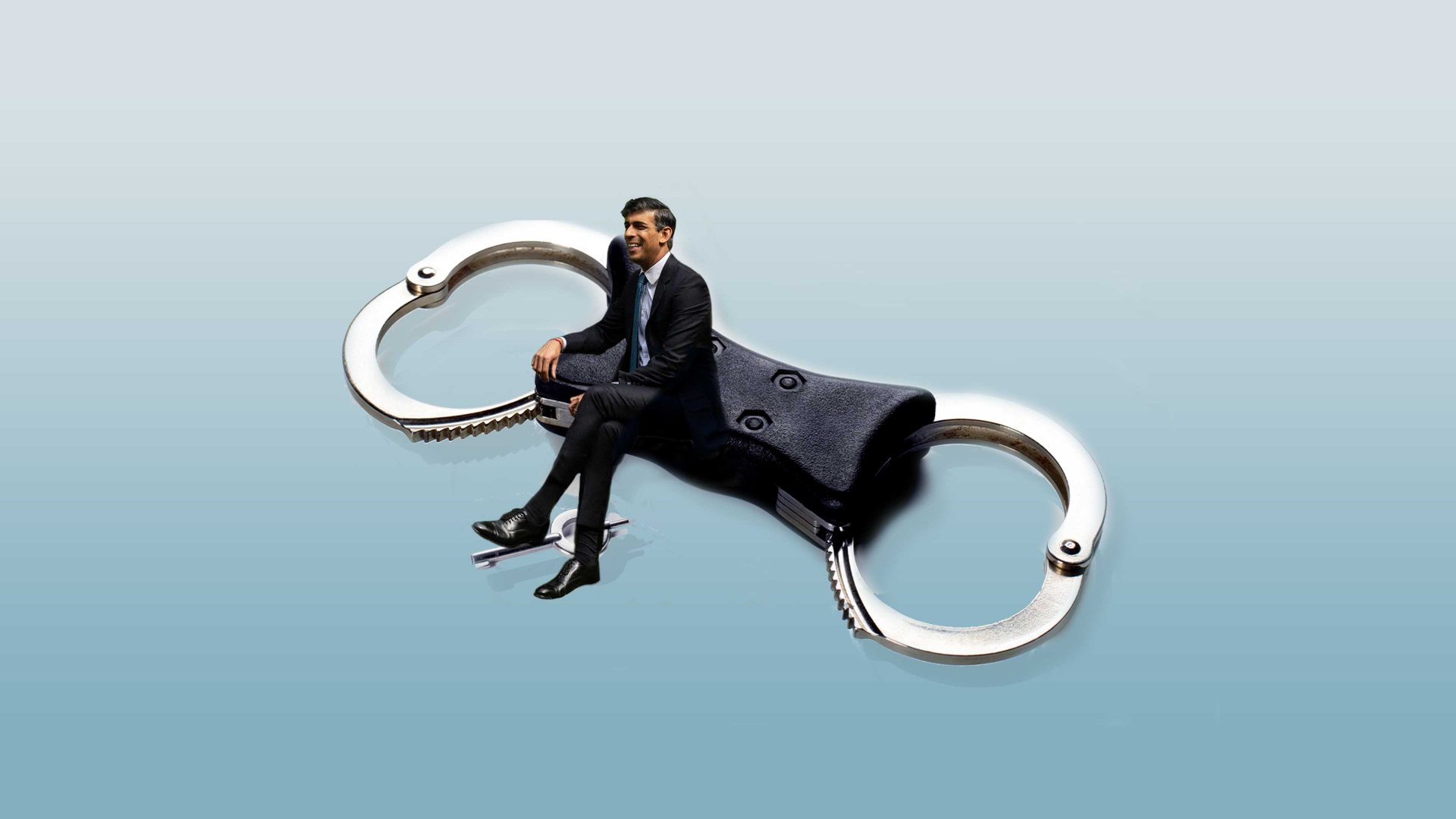Promising to be “tough on crime” is one of those dog whistles that politicians believe voters find irresistible. So it seems that the relatively new monarch, when he delivers his first King’s Speech – scheduled for November 7 – will be forced to announce a new Crime and Justice bill with the intention of mandating courts to send more shoplifters and burglars to jail.
This government’s enthusiasm for increasing the size of the statute book is boundless. Only last year a new Police, Crime Sentencing and Courts Act, adding another 300 pages, made its weary way through parliament. But, with the voting pack straying, it’s time to blow that dog whistle again and bring them back to heel.
In fact, even magistrates courts already have the power to sentence shoplifters and burglars to jail, but the government’s plan is to deprive them of any discretion in the matter after an offender has been found guilty on several occasions, the exact number still to be specified.
The result will be even more people headed to our dangerously overcrowded prisons. Maybe the Home Office is already trying to source a floating fire hazard of a barge on which to incarcerate the overflow, although Suella Braverman would probably favour sending the cargo of convicts straight off to the colonies.
That option being no longer available, the plan will inevitably put further strain on our prisons. Yet the reason magistrates and judges do not already mete out jail sentences to every shoplifter and burglar is because they know that there are usually more effective ways of dealing with them. According to the Centre for Justice Innovation: “The evidence is clear that community sentences reduce reoffending more than short custodial sentences.”
In dictating to the courts how they must deal with persistent offenders, it may be that the government is going to insist on long custodial sentences. That could lift the volume of the dog whistle because it seems that the majority of people – voters – believe that sentences have become too short.
Last year, research by Prof Julian Roberts of the Sentencing Academy found that 75% of people believed that sentences had become much shorter over the last 25 years. In fact, the opposite is true. Almost three times as many people were sentenced to more than 10 years in 2021 than in 2008.
The UK’s determination to lock people up is much greater than that of the rest of western Europe. Figures from 2022 show that England and Wales had 132 people in prison for every 100,000 in the population. Spain came closest at 116, but Germany had only 71 and Norway was down at 57. It is an expensive exercise to keep someone in jail: nearly £47,000 in 2021-22. Yet the Ministry of Justice conceded last year that 44% of those released from prison were reconvicted within a year.
Rishi Sunak now appears to be making policy solely on the basis of what he believes will win him votes, not bring long-term benefits for the country. As the new Crime and Justice bill heads to the Commons, we can expect to hear him echoing the words of Michael Howard, who went down a storm with the audience at the Conservative Conference in 1993 with the mantra that “prison works”.
He went on to say that “it ensures that we are protected from murderers, muggers and rapists”, which is no bad thing, but more than 60% of the people then in jail had been found guilty of non-violent offences.
Howard’s argument was simple and unarguably true: when criminals are in prison, they are not committing more crime. But what is also true is that British prisons fail dismally to rehabilitate offenders. The Howard League for Penal Reform (no relation) sums up the situation: “Putting more and more people into overcrowded prisons will never help them to turn their lives around or prepare for safe release.” Exposing minor offenders to hardened criminals can actually have the opposite effect, making them more of a danger to society.
An effective justice system faced with a shoplifter or other minor offender should surely first try to determine the problems that drove the individual to offend. A high proportion of those who land in prison suffer from drink or drug addiction; many are barely literate. The need to feed a habit, or feed a family, can drive people to crime. What they often need is help to overcome their problems and to find a job, not a stint behind bars where, incredibly, it still appears possible for previous non-drug users to become hooked.
The cost of living crisis is driving increasing numbers of people to food banks. It would not be surprising if it drove them to steal. That should not be condoned. Shoplifting is a cost to retailers that gets passed on to law-abiding customers. Society can rightly demand that, along with being offered help, the offender should make recompense of sorts. But how much more productive to insist on some unpaid work at a community centre, or gardening for elderly neighbours.
Sunak should admit that we already lock up too many people, and he should seek creative solutions to crime. Alas, he prefers his dog whistle. And, recognising the call, Labour is promising that it would provide more prison places. I despair!




